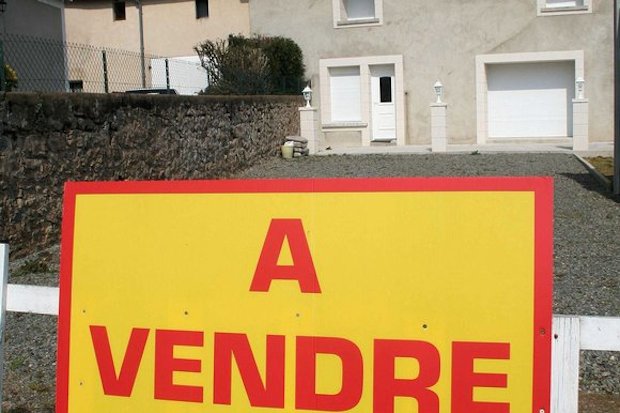BORROWERS will find it easier to fund a property purchase on the Continent as the falling cost of mortgages and strong pound boost their buying power but buyers must beware of the threat of deflation.
The European Central Bank (ECB) last week cut its main interest rate to a record low of 0.15% from 0.25% in an effort to stimulate the eurozone economy. This will push down borrowing costs and make mortgages in the eurozone more affordable.

Chez nous: France offers top deals (Sipa Press/REX) - read more on the Cle Mortgages page - click here.
The cheapest 20-year fixed-rate mortgage in France has already dropped from 3.75% to 3.45% since the start of the year, according to International Private Finance (IPF), an overseas mortgage specialist. Over the same time, sterling has strengthened from €1.20 to €1.23, cutting the monthly cost of a €250,000 repayment mortgage from £1,249 to £1,186.
As a result, the number of British buyers looking for a European bolt hole has been growing. IPF said it had seen a 24% increase in inquiries for French mortgages in the first three months of the year, compared with the same period in 2013.
Simon Conn, a broker specialising in overseas mortgages, said: “Over the past 12 to 18 months I have seen a steady increase in demand for the most popular countries, such as Spain, France, Portugal and Italy. Lenders have been lowering rates and also accepting smaller deposits.”
Of all the eurozone countries, France offers the best borrowing rates and accepts the smallest deposits — the cheapest being 2.3% for a 10-year fix with a 20% deposit. In Italy, the lowest rate available is 3.4% for a 20-year term and a 20% deposit, according to IPF. In Spain, the cheapest rate is higher at 4% over 20 years and the minimum deposit is 50%, while Portugal is even tougher for borrowers as the lowest rate is 5.28% spread over 30 years with a deposit of at least 60%.
Simon Smallwood of IPF said: “Mortgage rates for international borrowers are becoming more competitive. Expectations for interest rates in the eurozone are now lower than they were and this makes it likely that mortgage rates are going to stay lower for longer.”

Capital Economics, the consultancy, expects the ECB rate to remain at 0.15% until at least 2016.
However, Danny Cox of the adviser Hargreaves Lansdown urged potential buyers to be cautious. He said: “The eurozone economy is stagnating and heading towards deflation, when prices are continually falling. This could cause house prices to fall further and potentially extend the financial problems across the Continent.” Germany’s inflation rate almost halved last month to 0.6% from 1.1% in April.
Buyers should research their target country’s tax system, as there is a variety of property-based levies across Europe. Smallwood said: “Annual wealth tax in France and inheritance tax in Spain are calculated on the net value of the assets you hold in the country.”
This means buyers would be taxed less on a French property if they bought it using a mortgage, rather than by remortgaging their home in Britain and paying in cash. “It can therefore be beneficial to buy with a mortgage as this reduces its net value,” said Smallwood.
However, borrowers considering a foreign currency mortgage need to be aware of the exchange-rate risk. The pound may be getting stronger against the euro, but any reverse in this trend could leave buyers struggling to cover higher repayments.
The investment bank UBS has forecast the pound will strengthen against the euro to €1.33 in three months but drop to €1.25 in a year.
Buyers nervous about currency fluctuations may want to consider arranging a “forward contract” through an exchange specialist, to lock in a rate.
Kathleen Mackinnon-Helm is our specialist Overseas Mortgage Broker, she says between April 2013 and April 2014 borrowers in France have seen a drop of around 10% in the cost of their loan. Rates on ten and fifteen year terms dropped last month but currently rates are stable.
If market observers agree that an increase in rates is to be expected in the months to come – namely because of the FED’s monetary policy which will certainly have an impact on the European money markets - for the moment the mortgage market in France remains very attractive, even if the banks are very cautious and go through loan applications with a fine tooth comb.
In conclusion, given the historically low rates, borrowers now have a window of opportunity which will very likely not last.

Save time and money when sending or receiving international payments with Cle France. Go to our dedicated Currency page here.
Part of this article originally appeared in The Sunday Times 'Drive' section Sunday 8th June 2014.
Blog submitted by: David at The French Property Network - Cle France.